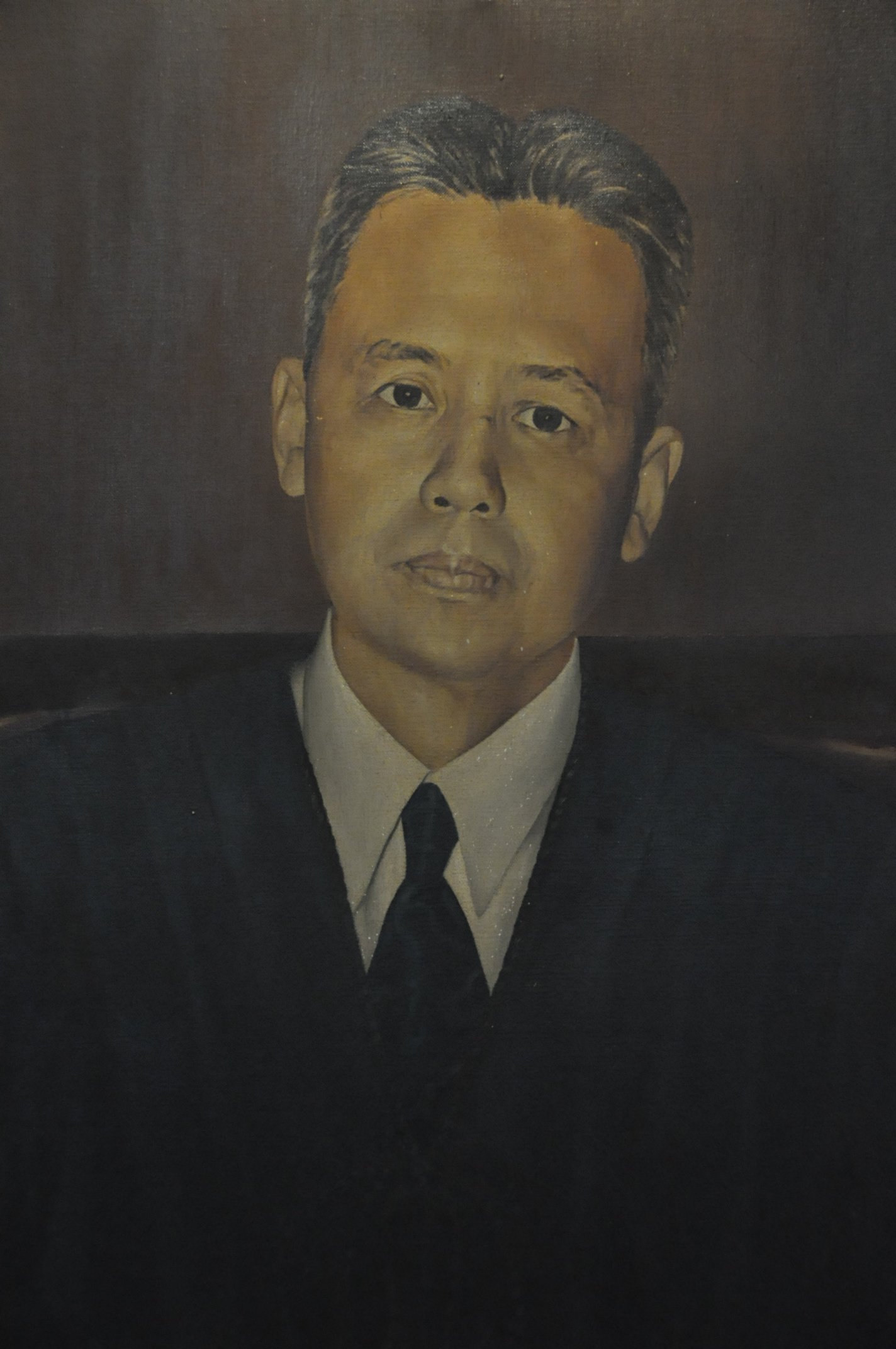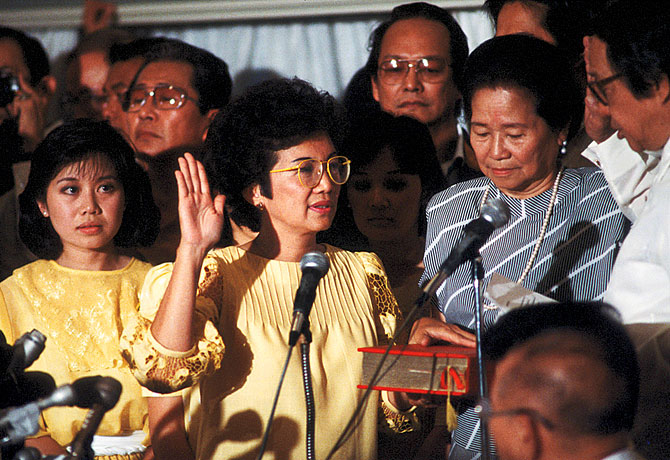|
Simeon V. Marcelo
Simeon V. Marcelo (born October 21, 1953) is a Filipino lawyer and was the third Ombudsman of the Philippines. As the Ombudsman, he acted as protector of the people against the illegal and unjust acts of those who are in the public service. He investigated government officials, including members of the police and the military, who were suspected of committing graft and corruption. Notably, he served as the principal private prosecutor in the impeachment case (and as head public prosecutor in the subsequent criminal prosecution for Plunder) of Former President Joseph Estrada, the 13th President of the Republic of the Philippines. After 3 years as Ombudsman, he resigned due to serious health problems. He was then replaced by Ma. Merceditas N. Gutierrez. Prior to being the Ombudsman, he was appointed head of the Office of the Solicitor General of the Philippines, representing the Government of the Philippines, its agencies and instrumentalists and its officials and agents in any ... [...More Info...] [...Related Items...] OR: [Wikipedia] [Google] [Baidu] |
Ombudsman Of The Philippines
The Ombudsman of the Philippines, also known as Tanodbayan ng Pilipinas, is an ombudsman responsible for investigating and prosecuting Philippine government officials accused of crimes, especially graft and corruption. Functions Under the 1987 Philippine Constitution and the Ombudsman Act of 1989, the Office of the Ombudsman independently monitors all three branches of the government for political corruption. The Ombudsman "is principally tasked to investigate on its own or upon complaint by any person, in any form or manner, any act or omission of any public officer or employee, including those in government-owned or controlled corporations, which appears to be illegal, unjust, improper or inefficient." After an investigation, the Ombudsman files charges at the Sandiganbayan, a special anti-graft court. The Offices of the Ombudsman includes the Ombudsman's own office, along with offices for a team composed of a Sheriff, the Ombudsman's second in command, and six other depu ... [...More Info...] [...Related Items...] OR: [Wikipedia] [Google] [Baidu] |
Supreme Court Of The Philippines
The Supreme Court ( fil, Kataas-taasang Hukuman; colloquially referred to as the ''Korte Suprema'' lso used in formal writing is the highest court in the Philippines. The Supreme Court was established by the Second Philippine Commission on June 11, 1901 through the enactment of its Act No. 136, an Act which abolished the '' Real Audiencia de Manila'', the predecessor of the Supreme Court. The Supreme Court compound, which sits in what is formerly a part of the University of the Philippines Manila campus, occupies the corner of Padre Faura Street and Taft Avenue in Ermita, Manila, with the main building directly in front of the Philippine General Hospital’s cancer institute. History Pre-hispanic period Prior to the conquest of Spain, the islands of the Philippines were composed of independent barangays, each of which is community composed of 30 to 100 families. Typically, a barangay is headed by a ''datu'' or a local chief who exercises all functions of government—ex ... [...More Info...] [...Related Items...] OR: [Wikipedia] [Google] [Baidu] |
1953 Births
Events January * January 6 – The Asian Socialist Conference opens in Rangoon, Burma. * January 12 – Estonian émigrés found a government-in-exile in Oslo. * January 14 ** Marshal Josip Broz Tito is chosen President of Yugoslavia. ** The CIA-sponsored Robertson Panel first meets to discuss the UFO phenomenon. * January 15 – Georg Dertinger, foreign minister of East Germany, is arrested for spying. * January 19 – 71.1% of all television sets in the United States are tuned into ''I Love Lucy'', to watch Lucy give birth to Little Ricky, which is more people than those who tune into Dwight Eisenhower's inauguration the next day. This record has yet to be broken. * January 20 – Dwight D. Eisenhower is sworn in as the 34th President of the United States. * January 24 ** Mau Mau Uprising: Rebels in Kenya kill the Ruck family (father, mother, and six-year-old son). ** Leader of East Germany Walter Ulbricht announces that agriculture will ... [...More Info...] [...Related Items...] OR: [Wikipedia] [Google] [Baidu] |
Philippine Ombudsman
The Ombudsman of the Philippines, also known as Tanodbayan ng Pilipinas, is an ombudsman responsible for investigating and prosecuting Philippine government officials accused of crimes, especially graft and corruption. Functions Under the 1987 Philippine Constitution and the Ombudsman Act of 1989, the Office of the Ombudsman independently monitors all three branches of the government for political corruption. The Ombudsman "is principally tasked to investigate on its own or upon complaint by any person, in any form or manner, any act or omission of any public officer or employee, including those in government-owned or controlled corporations, which appears to be illegal, unjust, improper or inefficient." After an investigation, the Ombudsman files charges at the Sandiganbayan, a special anti-graft court. The Offices of the Ombudsman includes the Ombudsman's own office, along with offices for a team composed of a Sheriff, the Ombudsman's second in command, and six other depu ... [...More Info...] [...Related Items...] OR: [Wikipedia] [Google] [Baidu] |
Good Governance
Good governance is the process of measuring how public institutions conduct public affairs and manage public resources and guarantee the realization of human rights in a manner essentially free of abuse and corruption and with due regard for the rule of law. Governance is "the process of decision-making and the process by which decisions are implemented (or not implemented)"."What is Good Governance" UNESCAP, 2009. Accessed April 6, 2021. Governance in this context can apply to corporate, international, national, or local governance as well as the interactions between other sectors of society. The concept of "good governance" thus emerges as a model to compare ineffective economies or political bodies with via ... [...More Info...] [...Related Items...] OR: [Wikipedia] [Google] [Baidu] |
Integrated Bar Of The Philippines
The Integrated Bar of the Philippines ( fil, Pinagsamang mga Abogasya ng Pilipinas abbreviated as IBP) is the national organization of lawyers in the Philippines. It is the mandatory bar association for Filipino lawyers. History The IBP was established as an official organization for the legal profession by Republic Act No. 6397. The law confirmed the constitutional power of the Philippine Supreme Court to adopt rules for the integration of the Philippine Bar. Consequently, Presidential Decree 189 constituted the IBP into a corporate body in 1973. On January 9, 1973, the Supreme Court ordained the integration of the Philippine Bar. The IBP Constitution and By-Laws shortly followed.IBP History, IBP National Headquarters, Pasig, Philippines. June 2007. Then recently retired Supreme Court Associate Justice J.B.L. Reyes was named as the first Chairman of the IBP in 1973. He served in that capacity until 1975, and was the Chairman emeritus for the remainder of his life. Reyes had be ... [...More Info...] [...Related Items...] OR: [Wikipedia] [Google] [Baidu] |
Philippine Daily Inquirer
The ''Philippine Daily Inquirer'' (''PDI''), or simply the ''Inquirer'', is an English-language newspaper in the Philippines. Founded in 1985, it is often regarded as the Philippines' newspaper of record. The newspaper is the most awarded broadsheet in the Philippines and the multimedia group, called The Inquirer Group, reaches 54 million people across several platforms. History The ''Philippine Daily Inquirer'' was founded on December 9, 1985, by publisher Eugenia Apóstol, columnist Max Solivén, together with Betty Go-Belmonte during the last days of the regime of President Ferdinand Marcos, becoming one of the first private newspapers to be established under the Marcos regime. The ''Inquirer'' succeeded the weekly ''Philippine Inquirer'', created in 1985 by Apostol to cover the trial of 25 soldiers accused of complicity in the assassination of opposition leader Ninoy Aquino at Manila International Airport on August 21, 1983. Apostol also published the '' Mr. & Ms. S ... [...More Info...] [...Related Items...] OR: [Wikipedia] [Google] [Baidu] |
DPWH
The Department of Public Works and Highways ( fil, Kagawaran ng mga Pagawain at Lansangang Bayan}), abbreviated as DPWH, is the executive department of the Philippine government solely vested with the Mandate to “be the State's engineering and construction arm” and, as such, it is “tasked to carry out the policy” of the State to “maintain an engineering and construction arm and continuously develop its technology, for the purposes of ensuring the safety of all infrastructure facilities and securing for all public works and highways the highest efficiency and the most appropriate quality in construction” and shall be responsible for “(t)he planning, design, construction and maintenance of infrastructure facilities, especially national highways, flood control and water resources development systems, and other public works in accordance with national development objectives,” provided that, the exercise of which “shall be decentralized to the fullest extent feasi ... [...More Info...] [...Related Items...] OR: [Wikipedia] [Google] [Baidu] |
Diosdado Macapagal
Diosdado Pangan Macapagal Sr. (; September 28, 1910 – April 21, 1997) was a Filipino lawyer, poet and politician who served as the ninth president of the Philippines, serving from 1961 to 1965, and the sixth vice president, serving from 1957 to 1961. He also served as a member of the House of Representatives, and headed the Constitutional Convention of 1970. He was the father of Gloria Macapagal Arroyo, who followed his path as president of the Philippines from 2001 to 2010. A native of Lubao, Pampanga, Macapagal graduated from the University of the Philippines and University of Santo Tomas, both in Manila, after which he worked as a lawyer for the government. He first won election in 1949 to the House of Representatives, representing the 1st district in his home province of Pampanga. In 1957, he became vice president under the rule of President Carlos P. Garcia, whom he later defeated in the 1961 election. As president, Macapagal worked to suppress graft and ... [...More Info...] [...Related Items...] OR: [Wikipedia] [Google] [Baidu] |
Sandiganbayan
The Sandiganbayan ( en, Support of the Nation) is a special appellate collegial court in the Philippines that has jurisdiction over criminal and civil cases involving graft and corrupt practices and other offenses committed by public officers and employees, including those in government-owned and controlled corporations. The special court was established by Presidential Decree No. 1486. It was subsequently modified by Presidential Decree No. 1606 and by Republic Acts 7975, 8249 and 10660. It is equal in rank to the Court of Appeals, and consists of fourteen Associate Justices and one Presiding Justice. The Office of the Ombudsman owns exclusive authority to bring cases to the Sandiganbayan. The Sandiganbayan is housed in the Centennial Building, Commonwealth Avenue, National Government Center, Diliman, Quezon City, Metro Manila. History The Sandiganbayan was established under the administration of President Ferdinand E. Marcos on June 11, 1978, by Presidential Decree ... [...More Info...] [...Related Items...] OR: [Wikipedia] [Google] [Baidu] |
Plunder
Looting is the act of stealing, or the taking of goods by force, typically in the midst of a military, political, or other social crisis, such as war, natural disasters (where law and civil enforcement are temporarily ineffective), or rioting. The proceeds of all these activities can be described as booty, loot, plunder, spoils, or pillage. During modern-day armed conflicts, looting is prohibited by international law, and constitutes a war crime.Rule 52. Pillage is prohibited. ''Customary IHL Database'', (ICRC)/ |





